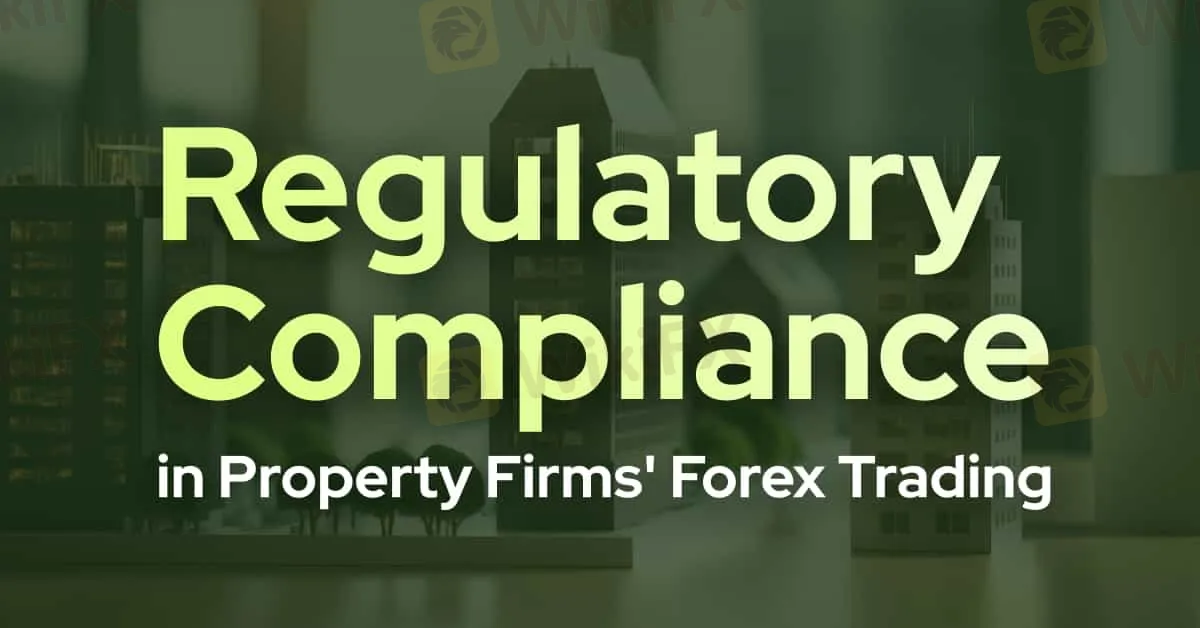简体中文
繁體中文
English
Pусский
日本語
ภาษาไทย
Tiếng Việt
Bahasa Indonesia
Español
हिन्दी
Filippiiniläinen
Français
Deutsch
Português
Türkçe
한국어
العربية
Regulatory Compliance in Property Firms' Forex Trading
Abstract:In the dynamic world of forex trading within property investment portfolios, regulatory compliance stands as the bedrock ensuring investor protection and market integrity. Property firms engaged in forex trading on behalf of their clients must navigate a complex regulatory landscape to safeguard their operations and uphold industry standards. This article delves into the critical importance of regulatory compliance in property firms' forex trading activities, shedding light on the regulatory frameworks and compliance strategies employed by these firms.

In the dynamic world of forex trading within property investment portfolios, regulatory compliance stands as the bedrock ensuring investor protection and market integrity. Property firms engaged in forex trading on behalf of their clients must navigate a complex regulatory landscape to safeguard their operations and uphold industry standards. This article delves into the critical importance of regulatory compliance in property firms' forex trading activities, shedding light on the regulatory frameworks and compliance strategies employed by these firms.
Regulatory Landscape:
Property firms operating in the UK and Europe encounter a robust regulatory environment overseen by regulatory authorities such as the Financial Conduct Authority (FCA) and the European Securities and Markets Authority (ESMA). These regulatory bodies impose stringent requirements and standards on firms engaged in forex trading to ensure transparency, fairness, and investor protection. Compliance with regulatory guidelines is essential for property firms to gain and maintain the trust of their clients while operating within legal boundaries.
Compliance Requirements:
Compliance with regulatory requirements entails adherence to a multitude of rules and regulations governing various aspects of forex trading. Property firms must obtain necessary licenses and authorizations from regulatory authorities to offer forex trading services legally. They are also obligated to implement robust risk management frameworks to mitigate currency risks and safeguard clients' investments. Additionally, property firms must adhere to strict reporting and disclosure requirements, providing clients with comprehensive information about their forex trading activities, risks involved, and potential returns.
Regulatory Challenges:
Navigating regulatory compliance poses significant challenges for property firms engaged in forex trading. The regulatory landscape is constantly evolving, with frequent updates and amendments to existing regulations. Property firms must stay abreast of regulatory changes and ensure timely implementation of compliance measures to avoid regulatory scrutiny and potential penalties. Moreover, compliance with cross-border regulations adds another layer of complexity, especially for property firms operating across multiple jurisdictions within Europe.
Compliance Strategies:
To effectively manage regulatory compliance, property firms employ a range of compliance strategies and best practices. This includes establishing robust internal compliance teams tasked with monitoring regulatory developments, conducting regular compliance audits, and ensuring adherence to regulatory guidelines. Collaborating with legal experts and compliance consultants also enables property firms to navigate regulatory complexities effectively and implement compliance measures tailored to their specific business needs.
Conclusion:
In conclusion, regulatory compliance is paramount for property firms engaged in forex trading on behalf of their clients. By adhering to regulatory requirements, property firms not only safeguard their operations and reputation but also ensure investor protection and market integrity. Amidst a rapidly evolving regulatory landscape, property firms must remain vigilant, proactive, and adaptable to regulatory changes to sustain their forex trading activities successfully. By prioritizing regulatory compliance, property firms can instill confidence and trust in their clients while contributing to a thriving and compliant forex trading ecosystem.
Finding More Information:
For those interested in learning more about regulatory compliance in forex trading and property investment, WikiFX serves as a valuable resource. WikiFX provides comprehensive information and ratings on forex brokers and investment firms, helping investors make informed decisions and navigate regulatory landscapes effectively. To explore further, visit WikiFX's website.

Disclaimer:
The views in this article only represent the author's personal views, and do not constitute investment advice on this platform. This platform does not guarantee the accuracy, completeness and timeliness of the information in the article, and will not be liable for any loss caused by the use of or reliance on the information in the article.
Read more

Italian Regulator Warns Against 5 Websites
The Italian regulator, CONSOB has issued a warning against five websites offering unauthorized financial services. This regulatory action aims to protect the public from fraudulent activities.

Trader Exposes Unethical Practices by STP Trading
A recent allegation against STP Trading has cast doubt on the firm's business practices, highlighting the potential risks faced by retail traders in an increasingly crowded and competitive market.

What Makes Cross-Border Payments Easier Than Ever?
Cross-border payments are now faster, cheaper, and simpler! Explore fintech, blockchain, and smart solutions to overcome costs, delays, and global payment hurdles.

FCA Identifies Clone Firm Exploiting Admiral Markets' Credibility
The UK Financial Conduct Authority (FCA) has issued a public warning regarding a fraudulent entity impersonating Admiral Markets, a legitimate and authorised trading firm. The clone firm, operating under the name Admiral EU Brokers and the domain Admiraleubrokerz.com, has been falsely presenting itself as an FCA-authorised business.
WikiFX Broker
Latest News
Hackers Charged for $11M Crypto Theft Using SIM-Swaps
Role of Central Banks in the FX Market
FCA Alerts Against Sydney FX
What Makes Cross-Border Payments Easier Than Ever?
Trader Exposes Unethical Practices by STP Trading
Malaysian Man Loses RM113,000 in Foreign Currency Investment Scam
Bitcoin Nears $100,000: A Triumph of Optimism or a Warning Sign?
Mastercard Partners with JPMorgan for B2B Cross-Border Payments
FCA Identifies Clone Firm Exploiting Admiral Markets' Credibility
Coinbase Under Scrutiny Amid Wrapped Bitcoin Delisting Controversy
Currency Calculator


